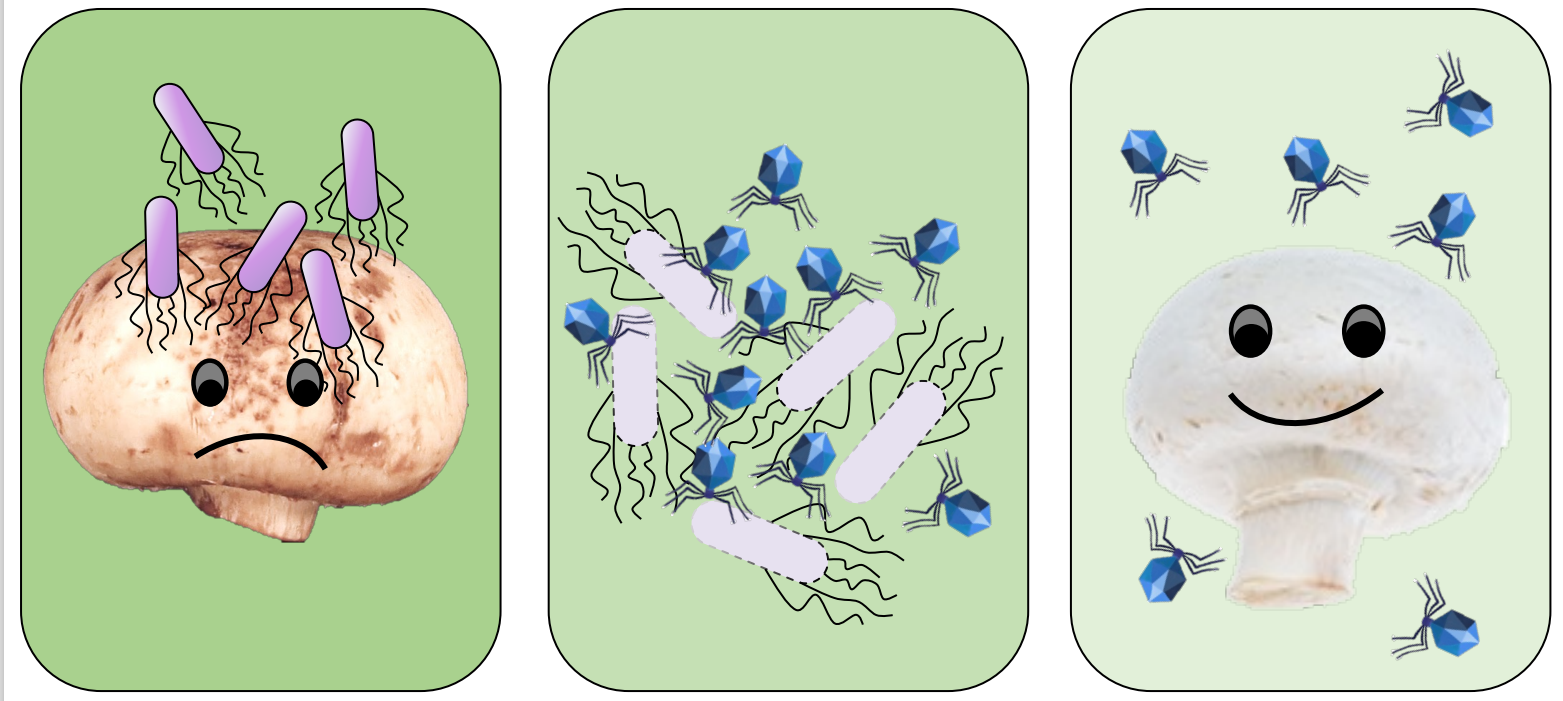
Short presentation followed by Q&A with Dr Jessica Bergman (Dept of Plant Sciences, University of Cambridge) on Fantastic fungi and how to keep them healthy
Coffee Break Seminars are a relaxed online learning and discussion platform for our food security community. Talks take place every Friday during term time at 2pm, UK time.
Please find the event recording here.
Abstract:
Mushroom farming has increased approximately 20 times since the 1960s. The most commonly commercially cultivated mushroom, Agaricus (button mushroom, chestnut mushroom, portobello mushroom etc.) is susceptible to, among other things, spoilage due to infections by the Gram-negative bacterial pathogen, Pseudomonas tolaasii. This pathogen causes brown blotch disease in mushrooms which can have significant impacts on mushroom shelf life, consumer acceptability and, thus, commercial value. As there are other bacterial species that promote mushroom pinning and growth, the casing material used for mushroom cultivation cannot simply be sterilized in order to avoid infections.
Bacteriophages (phages) are viruses that infect bacterial cells but are harmless to plants and animals. To address the problem with bacterial brown blotch on mushrooms we have isolated a series of phages from the natural environment that can infect and kill P. tolaasii. We have characterised these phages in terms of their morphology by electron microscopy, and by analysis of their genomes. The phages investigated thus far are members of two distinct genera, the Vicosavirus phages and the Ghunavirus phages, and representatives from both groups show promise as potential biocontrol agents when tested in mushroom infection assays.
Speaker:

